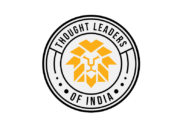Puneeth Bekal
A seasoned marketing professional with more than 15 years of demonstrated capabilities in managing large scale campaigns, digital activation, media innovations, content strategy, building brand architecture & marketing frameworks, data, media & consumer analytics and P&L delivery across various sectors.
He is Successfully orchestrated 5 of India’s largest award-winning campaigns to drive business & brand impact for Fortune 500 companies across FMCG, Consumer Durables, Retail, Real Estate & Fintech with noteworthy accolades like Emvies, Effies, Abbys, Smarties, Mobbys, Golden Mikes and more.
Currently associated as Director of Marketing with Mastercard. Here, I am spearheading India – South Asia’s B2C and B2B2C objectives through mass 360 campaigns, global sponsorship assets, partnerships & digital transformation to ensure cashless India in Tier 2/3 towns and become top of wallet amongst affluent consumers in Metros.

Our Exclusive Interview:
1. What does Leadership mean to you?
Leadership has been studied over the years in all spheres of life. Many of us are inspired by great leaders; there have been numerous studies on leadership styles, case studies of winning against all odds, be it in sports, politics, profession and more. While one decides to choose or evolve in Leadership depending on the context and the goal, one most important trait for a leader of today is to have the ability to comprehend and plan for the fast-changing landscape and connect the dots across a broad spectrum of possible synergies.
2. How do you keep your team motivated?
Alignment of personal, team and organizations goals is the most seamless way for a productive and inspiring work environment. Alignment in professional aspirations, emotional environment, a sense of self and collective pride and a fair and personalized reward framework.
3. It is said that a leader is as good or as bad as his/ her team. Do you agree? Why?
While logically, yes, a leader has the power to curate the team’s composition in a manner that brings out the best of everyone and is best suited for the stated goals.
4. How do you delegate responsibility? What is your mantra for making your team accountable?
Traits of ownership, self-drive and desire to innovate can only be inculcated by the leader or the surroundings. Delegation of responsibilities takes on a completely different meaning when your team is fully energized and has all the necessary resources to win.
5. Have you struggled with work-life balance? How did you handle it? How do you handle it even now?
A lot has been spoken and debated about work-life balance. Today, even governments and policymakers are talking about this. Work-life balance is dependent on three aspects
1. Individuals’ ability to manage stress (mental equilibrium)
2. Type of boss
3. Organization culture. Fortunately for me, I have had some excellent bosses in my career, learnt to pick and choose to render my services to companies where there is a mindset match and importantly, keep working on mental well-being on daily terms
6. How do you define your vision for your organisation?
Our vision is to create an environment which is positive, healthy and happy for everyone; there is a high level of belongingness and a culture to bring out your best. Exceed expectations of shareholders, stakeholders and customers. Deliver the best-in-class experience and stand apart, out there in the crowded marketplace.
7. How does competition affect your strategies towards your organization and team?
The very definition of competition today is changing. Your competitors can be partners and viceversa. The prime focus should be on opportunities that will help you grow and synergies which will help you scale
8. What matters to you the most – loyalty of your employees or loyalty to your customers/ clients?
Loyalty is the strengthening of the relationship between the two parties over time. There must be a mutually agreeable value of exchange that is satisfactory to both parties for this to happen. Hence, one cannot prioritize one loyalty over the other; both need to go together for a fulfilling relationship.
9. How important is an intellectual exchange for you? How do you seek it, and where?
Very important. Like most, I, too, seek it through books and new curated digital content on subjects I am keen to build expertise on. I miss having discussions with my learned friends and mentors due to the pandemic, but hopefully, that will start soon.
